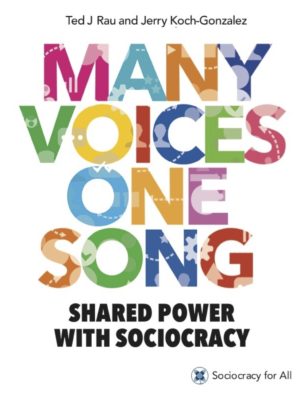Sociocracy joining the mainstream would allow it to relate its own methods/ideas/concepts to those of mainstream management theorists and industry leaders. This is crucial to the wider acceptance of sociocracy for two reasons:
1. People relate new ideas to what they already know. That can be to concepts or to names/words.
2. When I explain sociocracy to management people, educators and management consultants, they shrug and say all the best organizationsThe Delibrative Democracy Consortium (DDC)u is an alliance o... do that. Or that’s been focus of management theory since 1967.
The Mainstream
When sociocracy present ideas as uniquely its own it seems to be appropriating ideas, calling itself unique. In fact, these techniques are common, but sociocracy has a better way to combine the techniques of business with democratic values. Management theory has nothing but (sometimes) good intentions.
If sociocracy were presented with phrases such as “Like Peter Senge, sociocracy advocates……” “As did Peter Drucker said in 1957, sociocracy maintains that….” “X corporation’s strategic plan process is similar to that of sociocratic organizations with one exception.” Then people listen. They open up because they can hear ideas in the context of what they have personally already validated.
That’s why I worked so hard to relate sociocracy to other management theorists in We the People. This hadn’t been done before. The relationships in the book are not complete, partly because of my lack of knowledge of management theory in 2007, not that it’s so huge now, but it was a lot of research because I like to work with original sources. The other reason was because of space. The book couldn’t do two things at once. The immediate need was for a comprehensive guide and handbook on sociocracy with as much context as possible.
Unique to Sociocracy
What is unique to sociocracy, I think, are double linking, moving policy making to the bottom of the organization, and structuring policy and operations decisions not to “higher” and “lower” management, but as separate functions. At the upper levels of well-managed organizations, they are separated, if not by those names and if not always consciously. Policies are most often discussed and adopted in special meetings, often at retreats.
Even the use of consent is not unique to sociocracy. Upper management levels also use consent, though consent may not always be binding—there will be a fall back. The lack of a fallback in sociocracy and the clear definition of what “consent” means, however, are unique. The definition of “unique,” despite the word police who say either it’s unique or it isn’t, is a blurry one. Better said that is that consent is extended universally in the organization and used for many more types of decisions.
Sociocracy won’t be widely accepted until it begins to debate the big ideas in an arena where its own ideas will be heard.
Categories: History and Philosophy

